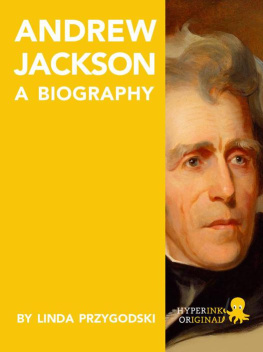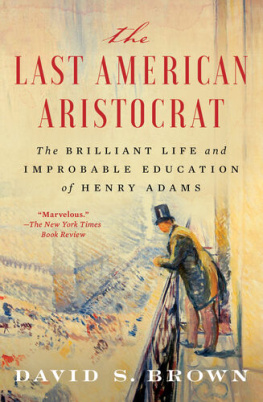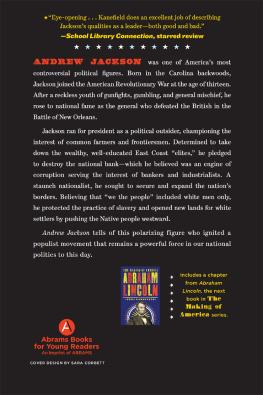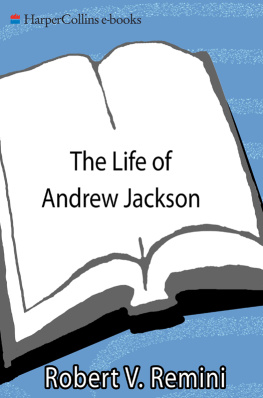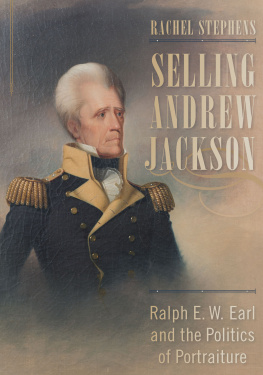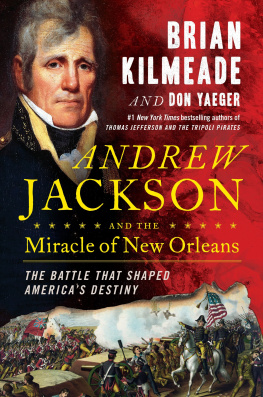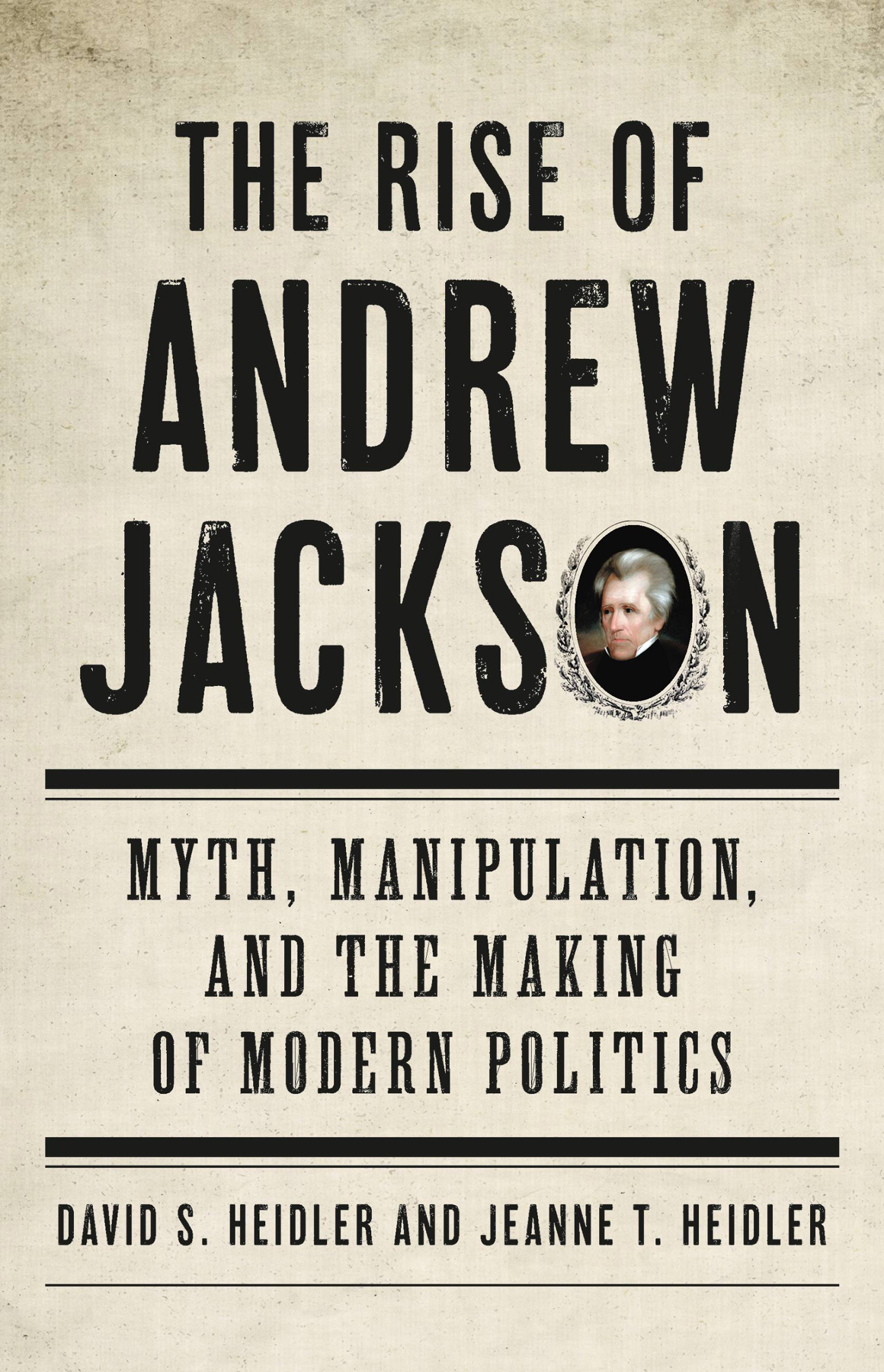Copyright 2018 by David S. Heidler and Jeanne T. Heidler
Hachette Book Group supports the right to free expression and the value of copyright. The purpose of copyright is to encourage writers and artists to produce the creative works that enrich our culture.
The scanning, uploading, and distribution of this book without permission is a theft of the authors intellectual property. If you would like permission to use material from the book (other than for review purposes), please contact permissions@hbgusa.com. Thank you for your support of the authors rights.
Basic Books
Hachette Book Group
1290 Avenue of the Americas, New York, NY 10104
www.basicbooks.com
First Edition: October 2018
Published by Basic Books, an imprint of Perseus Books, LLC, a subsidiary of Hachette Book Group, Inc. The Basic Books name and logo is a trademark of the Hachette Book Group.
The Hachette Speakers Bureau provides a wide range of authors for speaking events. To find out more, go to www.hachettespeakersbureau.com or call (866) 376-6591.
The publisher is not responsible for websites (or their content) that are not owned by the publisher.
Names: Heidler, David Stephen, 1955- author. | Heidler, Jeanne T., author.
Title: The rise of Andrew Jackson : myth, manipulation, and the making of modern politics / David S. Heidler and Jeanne T. Heidler.
Description: New York : Basic Books, 2018.
Identifiers: LCCN 2018015938| ISBN 9780465097562 (hardcover) | ISBN 9780465097579 (ebook)
Subjects: LCSH: Jackson, Andrew, 1767-1845. | Presidents--United
States--Election--1828. | Political campaigns--United
States--History--19th century. | Political partiesUnited
States--History--19th century. | Political culture--United
States--History--19th century. | United States--History--1815-1861. |
Presidents--United States--Biography. | United States--Politics and government--1829-1837.
Classification: LCC E381 .H45 2018 | DDC 973.5/6092 [B]dc23
LC record available at https://lccn.loc.gov/2018015938]
ISBNs: 978-0-465-09756-2 (hardcover), 978-0-465-09757-9 (ebook)
E3-20180905-JV-NF
Henry Clay: The Essential American
Washingtons Circle: The Creation of the President
T O OUR BROTHERS
C LARE D . H EIDLER III
J OHN A . H EIDLER
M ICHAEL A . T WIGGS
Friends given by nature
We have not corrected most spelling and punctuation errors in quotations from correspondence, diaries, and newspapers. Such errors were frequent in the early nineteenth century and to indicate them as accurately transcribed with the insertion of sic seemed to heckle the writer more than inform the reader. Only in cases when confusion might result have we used sic. Otherwise, imaginative spellers and eccentric grammarians have been allowed to speak in the pages that follow free from a pedants pen.
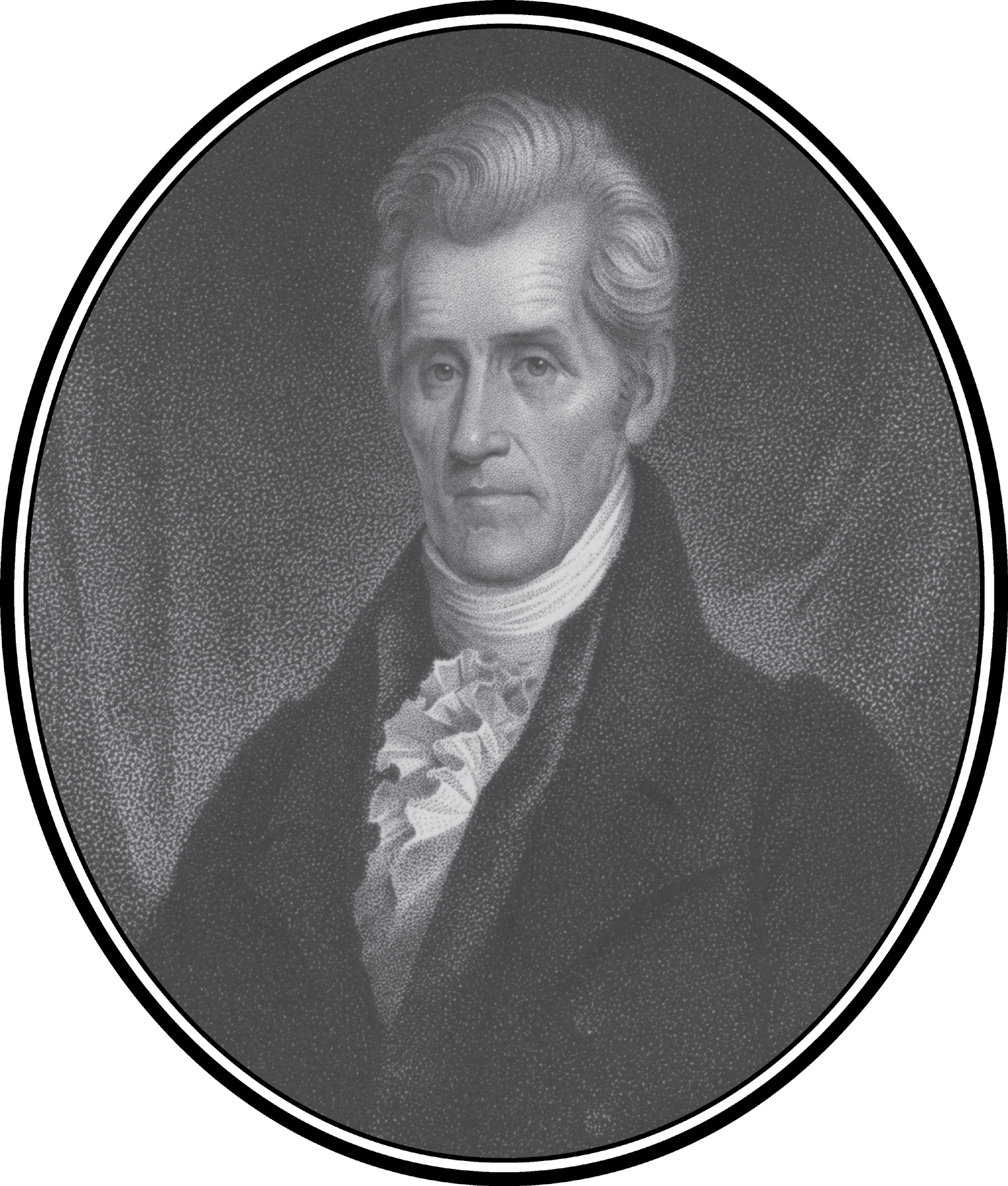
During the 1828 campaign, the famous engraver James Longacre copied a Ralph Earl portrait of Andrew Jackson that was sold to raise money for the campaign. The practice would be expanded in all future presidential campaigns. (Library of Congress)
T HE COMMON PEOPLE OF A MERICA ADORED A NDREW J ACKSON. No matter how far he traveled from his humble origins or how high he climbed above them, they always viewed him as a reflection of themselves. His first world was the frontier of the remote Carolina Upcountry, and the self-reliant folk of places like that could judge his angular face, calloused hands, and sinewed limbs as familiar features of a makeshift and hardscrabble life. Like him, many Americans ended the Revolutionary War with empty chairs by hearths reminding them of the highest toll of all in the quest for liberty. Like him, they endured deprivation with courage and loss with resilience. These plain folk intuitively admired a man who settled disputes quickly and whose horizons were not cluttered by doubt and anxiety, a man with a sense of self so unshakeable and stubborn that it could make him seem right against all comers even when he was wrongespecially when he was wrong.
As a rising man, Jackson entered an honorable profession (the law), attached himself to important people, acquired property, married well (though under strange circumstances), and rose to lead the Tennessee militia. He became a public manfor public men were the dominant people of the American sceneand entered politics though he possessed little political skill and a poor temperament for political life. His militia career provided him with a constituency, and his military exploits, though brief and limited, were so gaudy that they made him a hero. He first appeared to the public at a time of seeming decline and possible revival. In the early decades of the nineteenth century, most Americans no longer lived on the frontier, and according to some, they were getting soft and losing the pluck that had made them hardy colonizers and happy warriors.
A vague fear arose that the great accomplishments of the American Revolution were fading away because a delicate people, corrupted by comfort and cynical about government, could not remember the cost of liberty. Andrew Jacksons image as the man who could reverse this disturbing drift began with his stunning victory over the British at New Orleans in January 1815. Nine years later, his first attempt to win the presidency saw his supporters insisting that he could renew the nation, and by 1828, most voters agreed that Jackson was crucial to securing Americas future, in that he would draw on the best of its humble but energetic past.
In this setting and from these events, the remarkable rise of Andrew Jackson seemed to happen spontaneously, but there was much more to it than that. As early as 1816, a small group of people began working on a grand political project. Jacksons reputation as a peerless military hero fueled their enthusiasm and formed the foundation for his ascendant political career. Jacksons promoters harnessed a previously inchoate political movement spurred by broad discontent. People fumed over government corruption. They blamed the countrys central bank for its wrecked economy. They chafed at the disdainful elitism of their betters, who expected the deference of olden days to survive the passing fancy of democratic politics. Yeomen, mechanics, tradesmen, and small merchants were unembarrassed by the charge that democracy was the cudgel of the mob. They seemed to be yearning for an unshakeable and self-aware man ready to do right against all comers, even if he was wrong.
These ordinary, disaffected Americans voiced their resentment and rancor, but their utterances were so varied as to be discordant, and they were seemingly fated to remain so until the gaunt, cantankerous man appeared. He was nothing if not unshakeable and self-aware, but the growing mass of his followers at the start were neither, despite their veneer of purpose. Nevertheless, Andrew Jacksons boundless appeal for voters from starkly different social and economic backgrounds energized a broad and diverse population among whom quarrels were unavoidable.
People with different hopes and disparate dreams supported Andrew Jackson not only because of who he had been but also for what he seemed to be. A manufacturer in Pennsylvania who wanted protectionism saw Andrew Jackson as favoring stiff tariffs. A South Carolina planter who wanted free trade envisioned Jackson culling collectors and opening ports to the commerce of the world. Disgruntled Old Republicans nostalgic for Jeffersonian purity saw Jackson as a man intent on limiting the growing government and trimming its expansive Treasury. Federalists marginalized by the War of 1812 and vanishing under the relentless political march of their foes found a man ready to reject the quasi-religious tests of party and faction to allow them again to participate in the public commons and national government. A masterful politician with a scheme to make patronage and influence the bond of an invincible party perceived in Jackson a man who valued loyalty and would embrace ways to encourage it. A purist who believed patronage debased public service and promoted corruption saw a virtuous hero ready to quash special interests and stop their raids on the public till.


